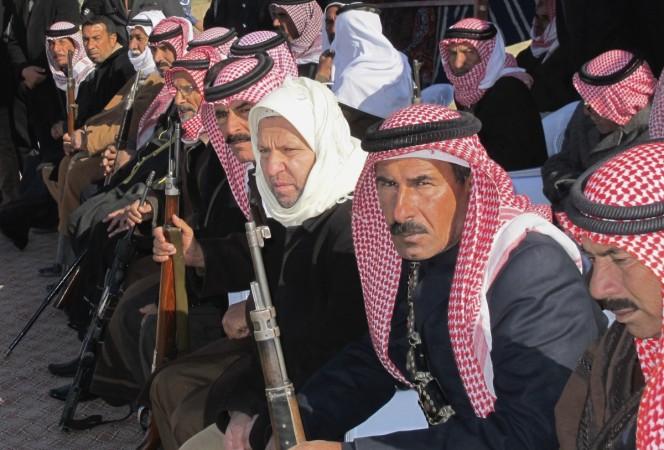
The United States has agreed to "arm and train" militias in Sunni-majority areas like the Anbar province in Iraq as the Islamic State or ISIS jihadists are trying to concentrate on regions where they are likely to find weakest opponents.
The news comes on the heels of the deadly militant group, also known as Islamic State of Iraq and the Levant (ISIL), suffering a major blow in the Syrian city of Kobane last week, where terrorists were "wiped out", according to the United States.
An Anbar province official, who visited Washington recently, has revealed to local Iraqi news outlets that the United States has agreed to support Anbar security forces and tribes in the fight against the hardliner group, which is poised at creating a caliphate in the area.
The US will support the Anbar militia as long as Baghdad approves of the arrangement, Abdulhakim al-Jaghifi - the mayor of Hadith - was cited as saying by local BasNews publication on Monday.
"The US has agreed to train and arm Sunni tribal groups and support the security forces of Anbar so long as Baghdad approves; the Iraqi federal government would have authority over and command the group," he said.
The Sunni tribal groups would reportedly be trained at the Ain al-Assad military air base, which is located west of Baghdad and stretches for miles. It was the biggest US army base before the Iraq war ended in 2011. Various reports state that it also functions as an open air corridor to transfer military support from Baghdad to other strategic areas.
In December last year, a Sunni tribal delegation led by the governor of Anbar Suhaib Rawi visited Washington to urge the United States to support them. Even before the visit, it was being speculated that the US was behind a Sunni tribal force of 50,000 in Iraq's Anbar province.
The US State Department had denied being part of the initiative at that time.

















